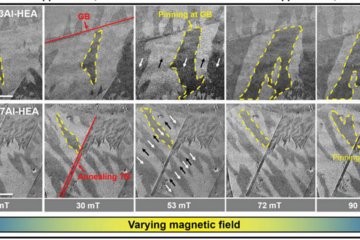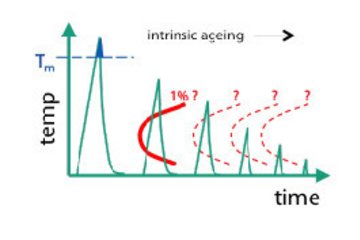All genres
1321.
Talk
Variation of empirical potentials using ab initio methods. Arbeitstreffen der Helmholtz-Allianz „HYPER“, Darmstadt (2006)
1322.
Talk
Ab initio Thermodynamik und Kinetik. Arbeitstreffen des SFB 761, Aachen, Germany (2006)
1323.
Talk
Temperature dependent properites of Ni2MnGa – An ab initio approach -. European Symposium on Martensitic Transformations (ESOMAT), Bochum (2006)
1324.
Talk
Ab initio study of human-bone-matched titanium alloys. Masaryk University, Brno, Czech Republic (2006)
1325.
Talk
Wasserstoffversprödung – Mechanismen verstehen und verhindern. ThyssenKrupp Steel, Center of Materials Excellence, Duisburg, Germany (2006)
1326.
Talk
Wasserstoffversprödung – Mechanismen verstehen und verhindern. ThyssenKrupp Steel, Center of Materials Excellence, Duisburg, Germany (2006)
1327.
Talk
Ab initio Simulation von Grenzflächen. Arbeitstreffen der Helmholtz-Allianz „Werkstoffübergänge“, Geesthacht (2006)
1328.
Talk
Kinetically stabilized ordering in AlGaN alloys. Institute of Fundamental Technological Research, Polish Academy of Sciences, Colloquium, Warsaw/Poland (2006)
1329.
Talk
Ferromagnetic shape memory alloys: Thermodynamic and magnetic properites. Joint group meeting at Material Research Laboratory of University of California, Santa Barbara, Santa Barbara, USA (2006)
1330.
Talk
Temperature and magnetic field dependent properites of Ni2MnGa. Kolloquium zur Festkörpertheorie, Institut für Physik der Humboldt-Universtität zu Berlin, Berlin, Germany (2006)
1331.
Talk
Anomalous equilibrium volume change of magnetic Fe–Al crystals. Seminar at Universität Erlangen-Nürnberg, Erlangen, Germany (2006)
1332.
Talk
Incorporation of N at GaAs and InAs surfaces: An ab-initio study. Technische Universität Berlin, Berlin, Germany (2006)
1333.
Talk
Anomalous equilibrium volume change of magnetic Fe–Al crystals. Institute of Physics of Materials, Czech Academy of Sciences, Brno, Czech Republic (2006)
1334.
Talk
Ab-initio based multiscale calculations of low-angle grain boundaries in Aluminum. DPG spring meeting, Dresden, Germany (2006)
1335.
Talk
Incorporation of N at GaAs and InAs surfaces. Deutsche Physikalische Gesellschaft Spring Meeting of the Division Condensed Matter, Dresden, Germany (2006)
1336.
Talk
Probing of bulk band edges by STM: An ab initio analysis. Deutsche Physikalische Gesellschaft - Spring Meeting of the Division Condensed Matter, Dresden, Germany (2006)
1337.
Talk
Anomalous equilibrium volume change of magnetic Fe–Al crystals. Deutsche Physikalische Gesellschaft Spring Meeting of the Division Condensed Matter, Dresden, Germany (2006)
1338.
Talk
On the balance of enthaplic and entropic contributions to the stability of the helix. Spring Meeting of the Division Condensed Matter, Dresden, Germany (2006)
1339.
Talk
Anomalous equilibrium volume change of magnetic Fe–Al crystals. American Physica Society March Meeting, Baltimore, MD, USA (2006)
1340.
Talk
Temperature and magnetic field dependent properites of Ni2MnGa. DPG Spring Meeting of the Division Condensed Matter, Dresden, Germany (2006)











